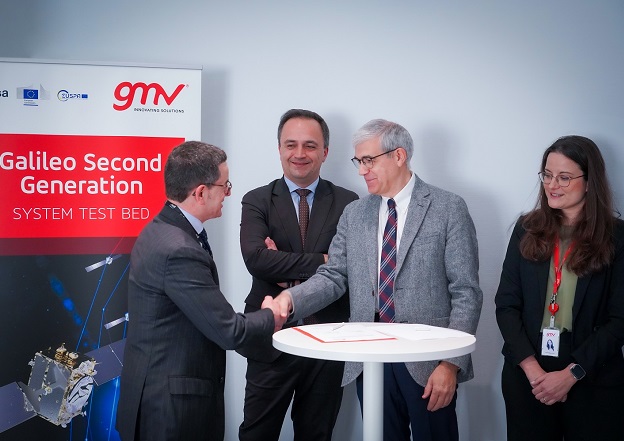
The signing ceremony for GMV’s contract for the Galileo Second Generation System Test Bed.
The European Space Agency has awarded multinational firm GMV a contract for the development of the Galileo Second Generation System Test Bed (G2STB).
GMV will lead a consortium including Thales Alenia Space Italy as core team member and a total of 20 entities from eight different European countries.
The G2STB will provide ESA with a key system verification and validation facility, enabling a wide range of Galileo system monitoring, troubleshooting, prototyping and experimentation activities.
The project will ensure a smooth transition from the Galileo First Generation (G1G) to Second generation (G2G), capitalising and building on the heritage of key G1G legacy system tools.
In particular, the G2STB is one of the key infrastructure elements that ESA is developing for the correct functioning of the Galileo Second generation satellites. The new generation of satellites will represent a major step forward for the Galileo constellation, incorporating numerous technology updates.
The G2STB will eventually replace and upgrade two existing G1G facilities, the Galileo System Evaluation Equipment and the Time and Geodetic Validation Facility (TGVF-X). The latter, developed and operated by GMV over the last decade, has played a key role in monitoring the Galileo signals and system validation activities during the Galileo Exploitation Phase.
The TGVF-X is also contributing to the early validation of new capabilities and elements being rolled out in recent and upcoming Galileo System updates.
Amongst other things, the G2STB will ensure the upgrade of the network of Galileo Experimental Sensor Stations to cope with the new signals and capabilities ensuring the availability of a G2-capable, worldwide, multi-constellation network of receivers and bit-grabbers, independent from the operational Galileo Sensor Stations.







